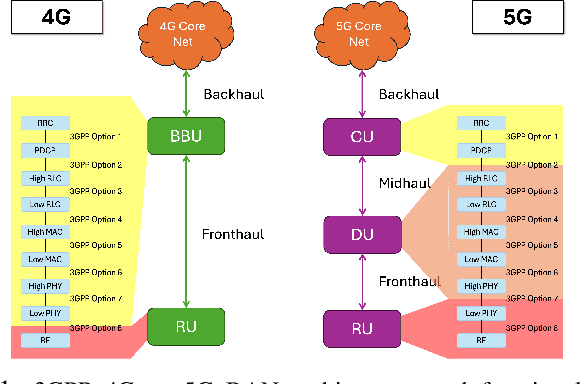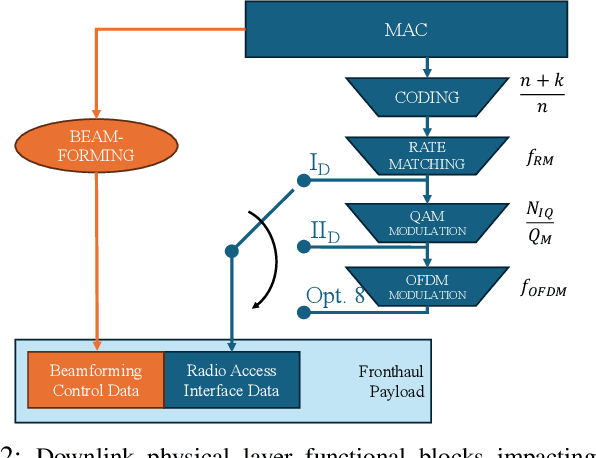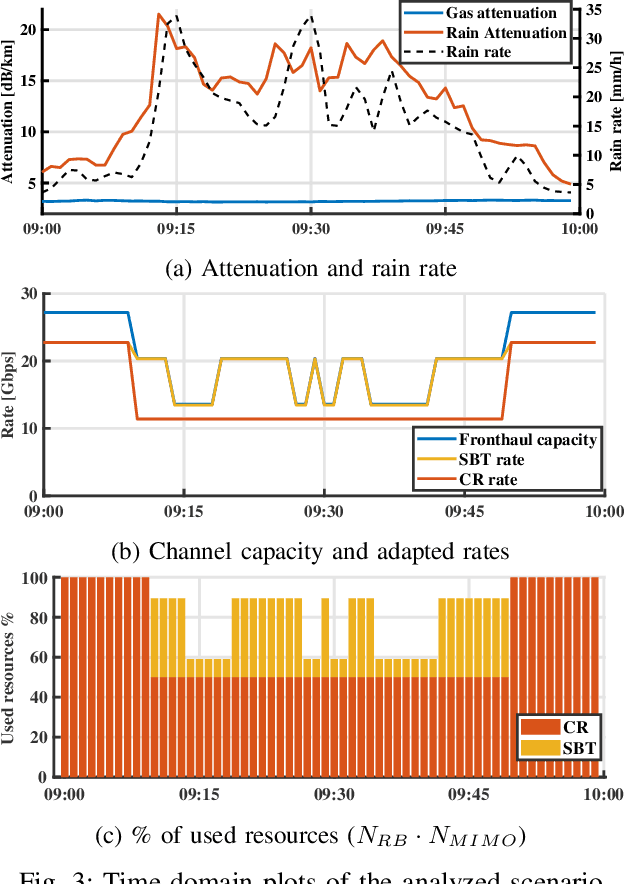Shaping Radio Access to Match Variable Wireless Fronthaul Quality in Next-Generation Networks
Paper and Code
Jun 22, 2024



The emergence of Centralized-RAN (C-RAN) has revolutionized mobile network infrastructure, offering streamlined cell-site engineering and enhanced network management capabilities. As C-RAN gains momentum, the focus shifts to optimizing fronthaul links. While fiber fronthaul guarantees performance, wireless alternatives provide cost efficiency and scalability, making them preferable in densely urbanized areas. However, wireless fronthaul often requires expensive over-dimensioning to overcome the challenging atmospheric attenuation typical of high frequencies. We propose a framework designed to continuously align radio access capacity with fronthaul link quality to overcome this rigidity. By gradually adapting radio access capacity to available fronthaul capacity, the framework ensures smooth degradation rather than complete service loss. Various strategies are proposed, considering factors like functional split and beamforming technology and exploring the tradeoff between adaptation strategy complexity and end-to-end system performance. Numerical evaluations using experimental rain attenuation data illustrate the framework's effectiveness in optimizing radio access capacity under realistically variable fronthaul link quality, ultimately proving the importance of adaptive capacity management in maximizing C-RAN efficiency.
 Add to Chrome
Add to Chrome Add to Firefox
Add to Firefox Add to Edge
Add to Edge